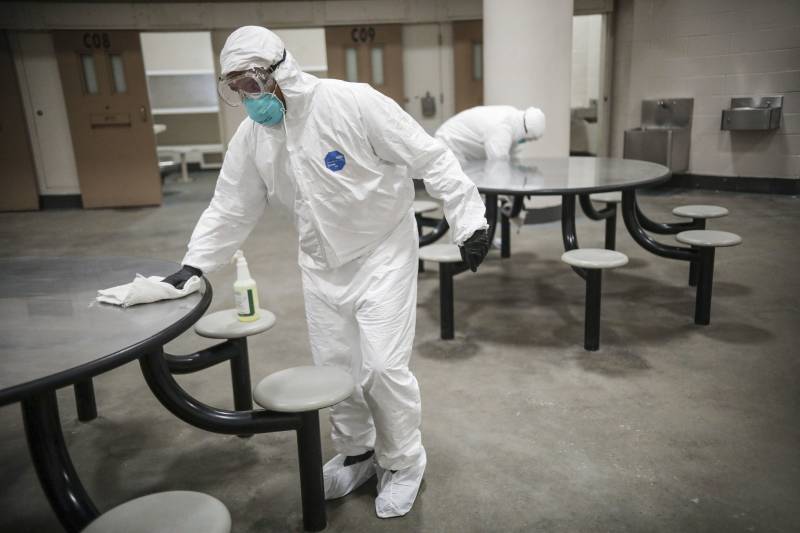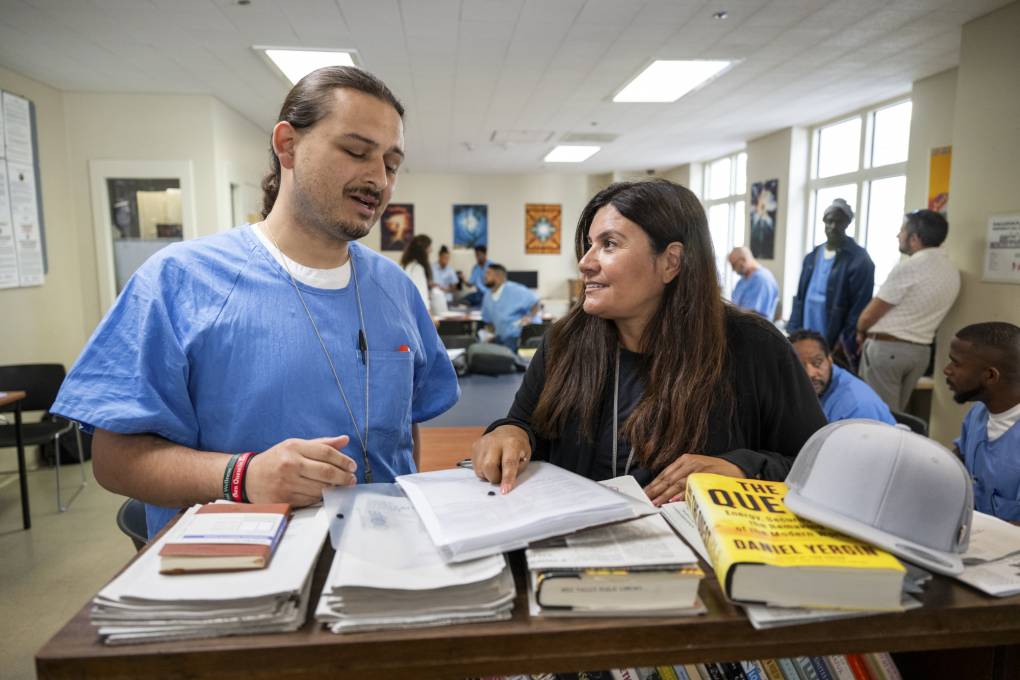The quarantine was a precautionary measure after his son’s cellmate came down with a fever, but Puckett is worried because he hasn’t heard from him in more than a week.
Puckett said he keeps in touch with friends still in prison, some of whom have shared a variety of concerns — from losing access to law libraries that are critical to incarcerated people fighting their own court cases, to seeing some guards not wearing masks.
“When you’re incarcerated, you’re basically sitting in a box,” Puckett said. “There’s only so much you can do, so you know, you’re more worried about what’s coming in than what’s going out.”
Incarcerated people are particularly vulnerable during this pandemic, and new safety measures have also limited the support they’re able to receive. In the California state prison system, for instance, all visitors, volunteers and rehabilitative program providers have been suspended since mid-March.
As for Puckett, the timing of his release has been bittersweet, but he’s grateful to be able to spend extra time with his sister and daughter at their home in Sacramento.
“I mean, it’s good and it’s bad, so I take it as it is,” he said. “But I’d much rather be out here dealing with this situation than dealing with it in there.”
Puckett said there are ways to make a positive impact in the lives of incarcerated people despite safety restrictions, such as writing to them or donating to organizations that are continuing to do critical work, like the Innocence Project.
Here is a list of ways you can help incarcerated people during the pandemic:
The Marshall Project, a nonprofit news organization focused on criminal justice, created a survival guide for incarcerated people that gives advice for how they can protect themselves while in jail or prison.
Give Money Directly
Restore Justice, a Los Angeles-based nonprofit organization for criminal justice reform, organized a Facebook group to help people find incarcerated individuals who need money for commissary items such as food, or hygiene products like soap and toothpaste. You can find identification information for an incarcerated person who needs money and send it directly to that person’s account.
Help People Post Bail
Community bail funds allow people to pay their bail and await trial at home, thus reducing jail populations. Here is a national directory of bail funds within the criminal or immigration detention systems.
Donate to Organizations Helping Incarcerated Individuals
Some community organizations have created funds to provide personal protective equipment and hygiene supplies to incarcerated people in jails and prisons.
Organizations that support incarcerated people continue to do critical work, even though many of their efforts are currently hindered by health and safety precautions. Here are some local organizations that are continuing to provide support and resources:
Send a Message of Encouragement
Since health and safety precautions have limited the visitors who can come into prisons and jails, incarcerated people are now even further isolated from family, friends and volunteers. Puckett and Lori Stone, a spokesperson for the Northern California Innocence Project, said receiving mail can go a long way in helping to lift incarcerated people’s spirits, especially now.
“I think that writing is really awesome because, you know, everybody out here is in lockdown in the communities, but the prisons are in lockdown as well,” Stone said. “There are a lot of folks that are kind of on their own inside the prisons.”
To send a letter, you have to know the name and ID number of an incarcerated person. If you don’t know someone personally, you can locate a pen pal online or through an organization.
- Contact someone directly: Here’s how to contact someone you already know in California state prison.
- Find a pen pal: You can find incarcerated people in search of a pen pal through a Facebook group, including this one, or through efforts like the Prisoner Correspondence Project or Write a Prisoner.
- Reach out to students at San Quentin State Prison: Though the Prison University Project is temporarily suspending all programming at San Quentin State Prison, you can send a message to students at info@prisonuniversityproject.org, with the subject heading “Message to Students.”
- Go through the Innocence Project: One Innocence Project client, Darrill Henry, had his conviction overturned in April, and he’s now awaiting his new trial from Louisiana State Penitentiary. Send him a message here.
Support People Released From Jail or Prison
In April, California state prison officials began the early release of roughly 3,500 nonviolent offenders — mostly those within 60 days of their release date or who had already been granted parole — to help alleviate crowding amid the coronavirus pandemic. Local jails have also released thousands of low-level inmates.



